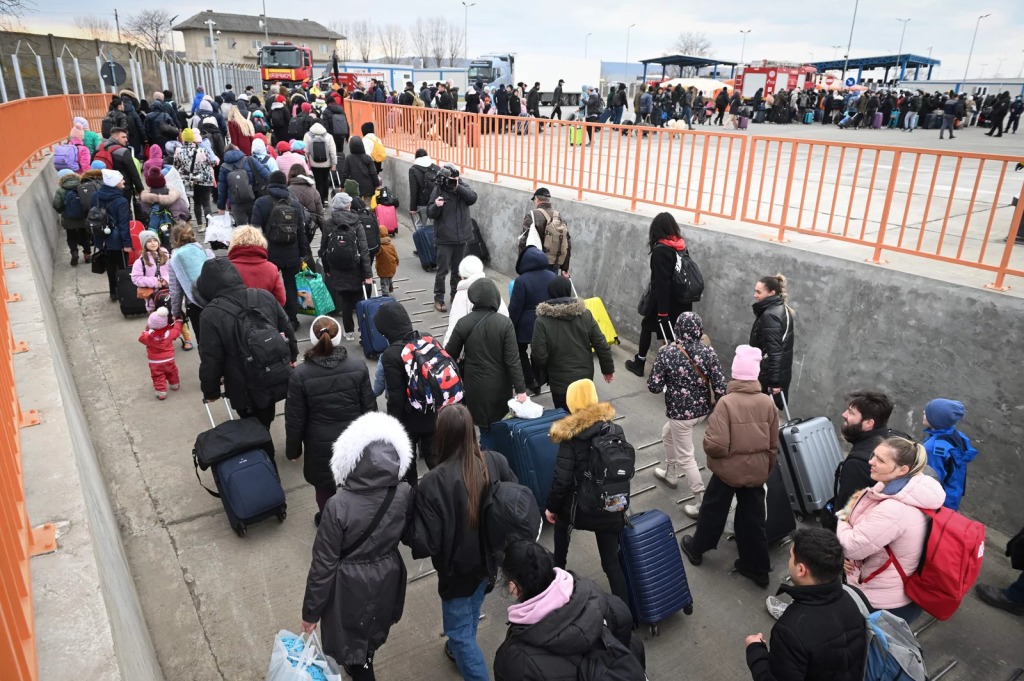
It has been a hard week to focus on startupland.
My usual daily obsession with new innovations, new entrepreneurs, and new fundings has been replaced with daily reports of bombs, convoys, and sanctions as Ukraine struggles for its survival. The blog post I had been working on regarding illiquidity in venture capital and the recent tech market correction now seems woefully tone-deaf.
My inbox and news feeds are full of heroic acts by Ukrainian friends, colleagues, and former students. One of my VC friends posted last night that he and his wife had flown from Boston to the Romanian border and handed out $7,000 in cash to 100 Ukrainian women.
This week’s NY Times The Daily podcast — “In Ukraine, the Men Who Must Stay and Fight” — described the buses being stopped at the Ukrainian border as all men ages 18–60 are ordered to remain in the country to take up arms to fight. As one Ukrainian young man put it, “Last week, I was contemplating what new game to buy for my PlayStation and today I am contemplating taking up arms to kill Russian soldiers and defend my country.”
A Ukrainian former HBS student who is a managing director of a private equity firm in Kyiv with over a billion under management, happily married with two young children, wrote: “All we have now fits in a few suitcases…this is not an abstract [classroom] discussion — it’s Munich all over again. We’re on the brink of WW III if the world doesn’t act. Please speak up. Please don’t remain silent.”
The echoes of 2022 and 1939 ring particularly true to my ears. My father was born and raised in pre-War Poland in an obscure city that is now in Western Ukraine called Lviv. I watch CNN every night, bewildered, as Andersen Cooper reports from Lviv. When the war broke out in September 1939, my father (then 14 years old — now turning 97 in a few weeks) and his sister and parents drove to the Polish-Romanian border, which today is near the very same Ukrainian-Romanian border town referenced above. Like my former student, they had crammed their most precious possessions into the few suitcases that could fit with them all in the car.
My father describes the September 1939 border crossing in his recently published memoir, “The scene at the bridge was unbelievable. The entire Polish government was evacuating. There was a long cavalcade of cars carrying various dignitaries from Warsaw. Some of the limousines flew foreign flags and carried officials from foreign allegations and their families…Poland and its most respected institutions were dissolving before our very eyes.”
My grandparents had doubted their decision to flee their friends, family, and home until they saw these dignitaries departing. They abandoned their suitcases, stuffed whatever they could fit into knapsacks, and walked across the border with the help of a smuggler and a healthy bribe — my grandfather handed over his precious silver pocket watch to the border guard. My father describes that his grandfather had the foresight to liquidate much of his net worth into a handful of bars of gold, one kilogram each, which he carried in his knapsack. As I read reports of modern-day Ukrainians carrying their cryptocurrencies across the border and the millions of dollars of donations flowing through the blockchain into the hands of Ukrainian families and relief organizations, I get the chills.
My father’s survival created a ripple effect, allowing him to eventually find his way to the United States, meet and marry my mother, and have me and my two sisters. I would not be here today if not for many random acts of fate during that harrowing time. Similarly, every single Ukrainian refugee has a story and a legacy. As the Talmud says, “Save one life, save the entire world.”
I pray for our leaders and I pray for the Ukrainian people and all those affected by this war.
